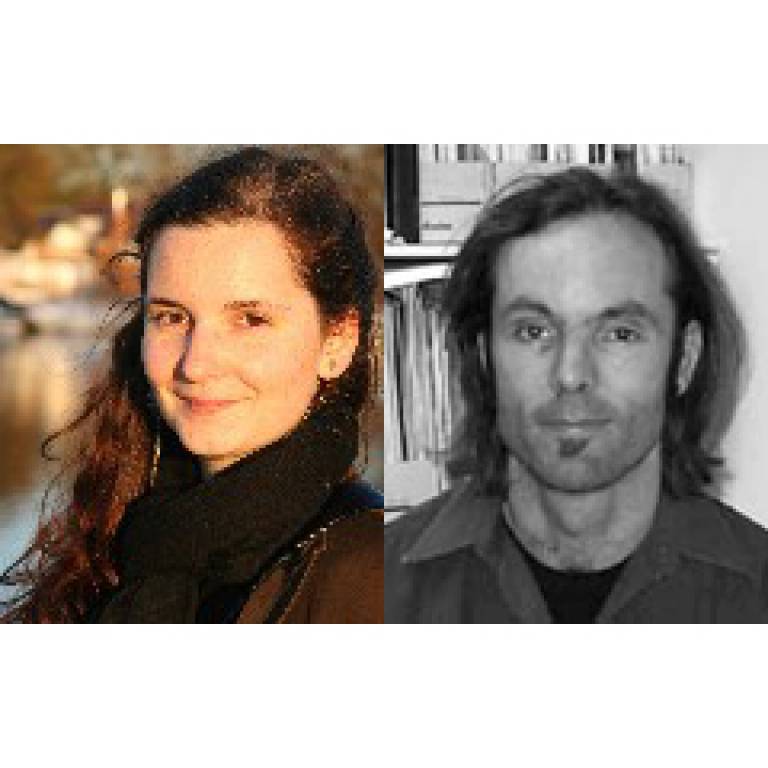UCL city planning researchers head for Germany on prestigious fellowships
8 July 2009
Links:
 ucl.ac.uk/research/personal?upi=CMCOL44" target="_self">Dr Claire Colomb
ucl.ac.uk/research/personal?upi=CMCOL44" target="_self">Dr Claire Colomb
Germany's city beaches and the marketing of Berlin will be explored by two researchers from the UCL Bartlett School of Planning through prestigious research fellowships awarded by the Alexander von Humboldt Foundation.
Dr Claire Colomb and Dr Quentin Stevens have won Humboldt Research Fellowships, which are extremely competitive and awarded solely on the basis of academic record. The fellowships enable highly qualified scholars from outside Germany to spend at least six months in the country to advance their research.
Dr Colomb's project focuses on the practices of city marketing and 'staging of the city' which characterised Berlin after the fall of the Wall. Throughout the 1990s and early 2000s, a complex network of actors were involved in various practices of place marketing and branding for Berlin, producing images of, and a discourse on, the city, urban change and place identity.
She said: "The goals of place marketing can include attracting tourists, investors, mega-events, or generating the support of local residents. The process is 'spatial' in the sense that it tries to construct a defined identity for a particular geographical space, and usually makes use of specific architectural and visual symbols characterising that place. Place marketing activities thus interact with place making activities (architecture, planning, urban design and urban development) and with the politics of local identity and memory construction through space."
Dr Stevens will research the evolution of Germany's city beaches. He said: "The first artificial city beach opened in 2002. Now Germany has hundreds, but there are no studies analysing their success. Low-budget, privately financed, self-built and temporary, these new quasi-public leisure spaces typify the 'postindustrial' revitalisation of urban space, its struggles between profit, city marketing, gentrification and resident quality of life. Germany's deindustrialised waterfronts and economic shifts encourage such small-scale entrepreneurial reuse and regeneration of urban land.
"Examining Germany's city beaches will provide many new insights into the contemporary dynamics of urban space use and urban redevelopment processes; the shift in urban governance from regulation to facilitation of private investment; and the roles of creative industries and temporary events."
Image: Dr Claire Colomb and Dr Quentin Stevens, 2009 winners of Humboldt Research Fellowships
UCL Context
The UCL Bartlett School of Planning plays a leading international role in academic, policy and practice debates relating to urban and regional development research. To achieve this, the Bartlett places itself at the heart of international debates on the future of cities and regions. Over the last 100 years the School, based in central London, has built up a strong international reputation with multidisciplinary staff.
Related news
Professor Yvonne Rydin joins government architecture panel
UCL podcast: The built environment and the zero-carbon agenda
 Close
Close

